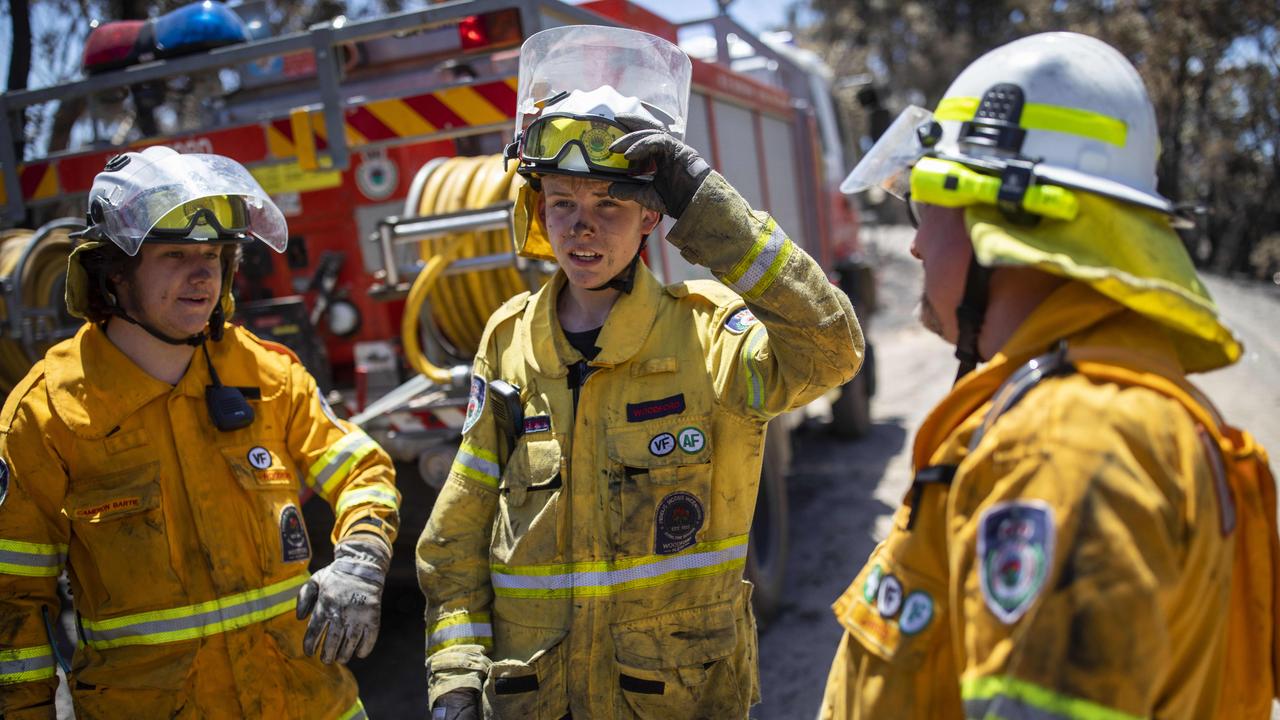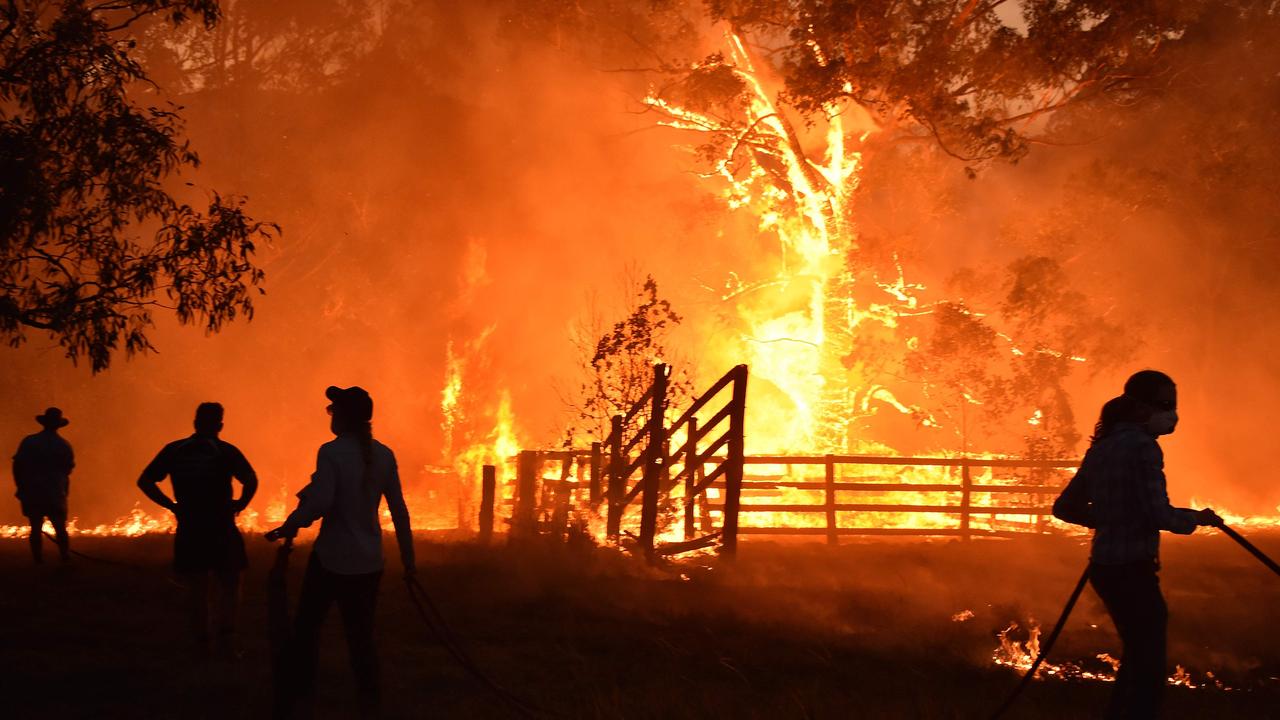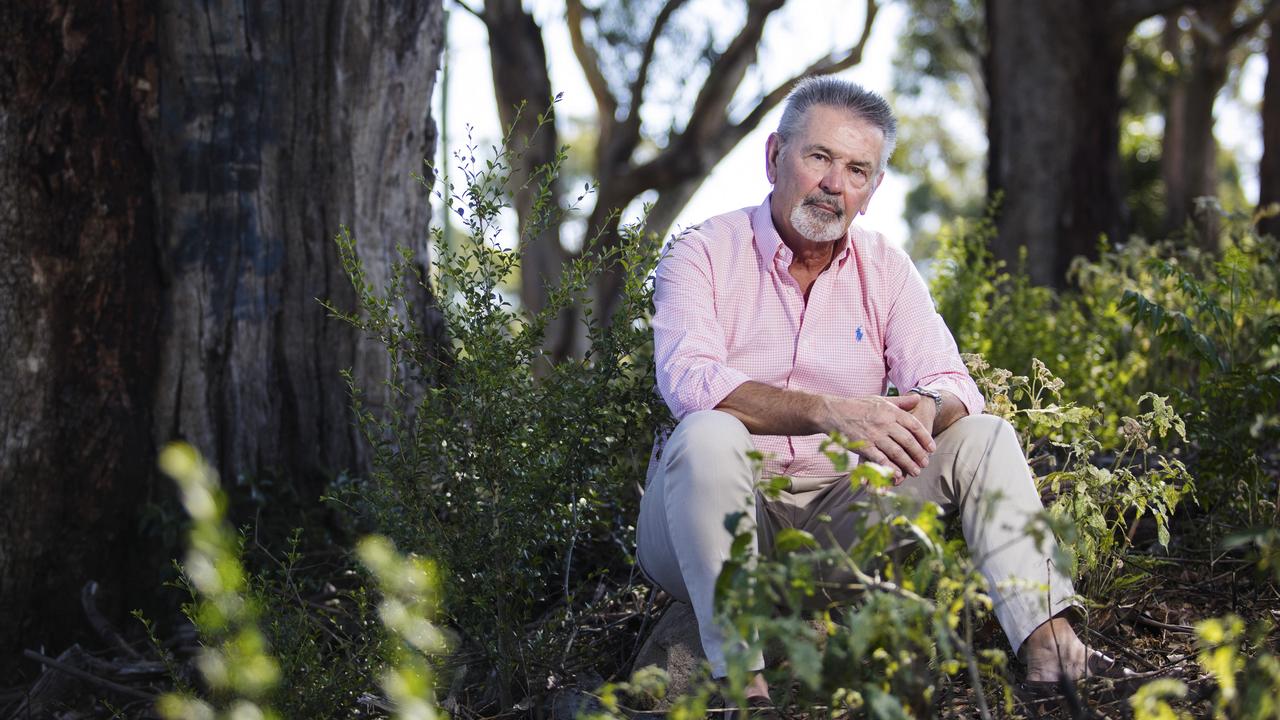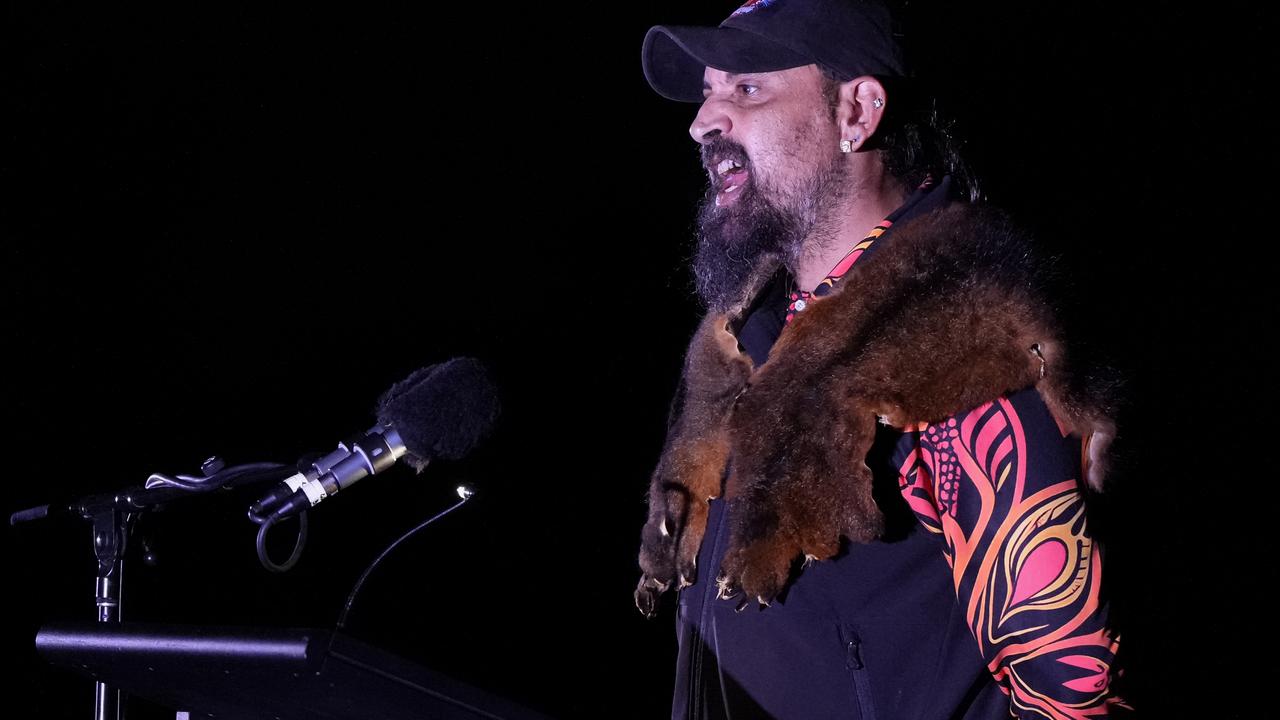Relief as armageddon in Blue Mountains avoided
The bushfire armageddon some feared would sweep the Blue Mountains never eventuated. Not that the locals weren’t ready.

At 12.15pm, the crew from the Woodford Rural Fire Service scrambled for their truck, tore off down the road and disappeared into a cloud of dust in search of a column of smoke reported somewhere in the bush a few kilometres away.
Six hours later and that, mercifully, was about as exciting as things got.
Winds gusted, the temperature soared and what little moisture was in the air evaporated in a haze. There were spot fires in Woodford and Llandilo, and in the afternoon a blaze threatened to get out of control around Katoomba.
But the bushfire armageddon some feared would sweep the Blue Mountains never eventuated.
Not that the locals weren’t ready — fighting fires is something of a way of life in the Blue Mountains, so much so that it is taught in the schools.
Among the crew yesterday was Chris Wright, 16, who has been in the Woodford Rural Fire Service since he was 12. He joined as part of the cadet program the RFS runs in local schools.
READ MORE: Live coverage — new fire fronts break out | After fires, issues to resolve: Kelly | Days now weeks for exhausted heroes | Ill winds reignite menace | Military may be put in firing line | Another blow for face of bushfire crisis | ‘Obnoxious uncle’ Joyce under attack
About half a dozen of his mates have done the same, and he was one of a dozen or so RFS members responding to the Woodford hot spot. When asked why he joined, he was blunt: “My father is captain — he told me to. Plus, I wanted to.”
Woodford resident Frank Steinke said most people would stick the bushfires out “unless they find it really too much for them’’.
Mr Steinke and his wife, Beverly Taylor, had spent Tuesday morning clearing leaves and tinder from their gutters and around the edge of their home. Next door, their neighbour had installed two pump hoses and put a sprinkler on the roof. They were monitoring the radios, talking with neighbours and checking their RFS app.
While a few had left for Sydney the day before, most were staying. “I believe very strongly in protecting the house,’’ Mr Steinke said. “If the house does go down, well, its done its job protecting you.’’
As Tuesday began, the concern was not with existing fires but with the rogue ones that spring up and are carried off at lightning speed by blistering winds and dry conditions. All it takes is a cigarette, a downed power line, a teenager with a lighter or a single ember carried high by the breeze.
A few kilometres from Mr Steinke and his wife, a fire beaten back by the RFS at the weekend began to smoulder. Crews patrolling the fire ground reported a plume of smoke about 200m into the scrub. There was talk of dispatching a helicopter to water-bomb it into submission, but high winds or a lack of resources meant that didn’t happen. Instead, the RFS rolled a line of hose through charred scrub to the site of the fire and doused it as best it could.
In Llandilo, at the foot of the mountains, a blaze threatened to take out a swath of properties and a paddock agisting horses. The local fire authorities reckoned a power line or cigarette thrown from a car was the likely culprit. Residents said the blaze started in a corner by the side of the road and within a minute had travelled hundreds of metres up the street, leaping from tree to tree and feeding off the dry scrub.
Ronda Masters, the owner of the 2ha property, returned from a shopping trip to find the paddock adjacent to her home a charred ruin. She said she had obtained a permit from the RFS to do a controlled burn at the end of winter, but nothing happened: “Because of red tape, it took too long.’’
As for debates in the cities about climate change and land management practices, locals were not so much offended by them as indifferent to them. “They need more burnoffs,’’ Ms Masters said. “Of course there’s climate change. Nothing’s changed … it’s a natural course of attrition.’’
Ms Taylor is in no doubt why this fire season is worse than the last: “It’s climate change. It’s obvious. It’s definitely changing.’’
Either way, as the day ended without loss of life or property, the mood was one of relief rather than recrimination.




To join the conversation, please log in. Don't have an account? Register
Join the conversation, you are commenting as Logout